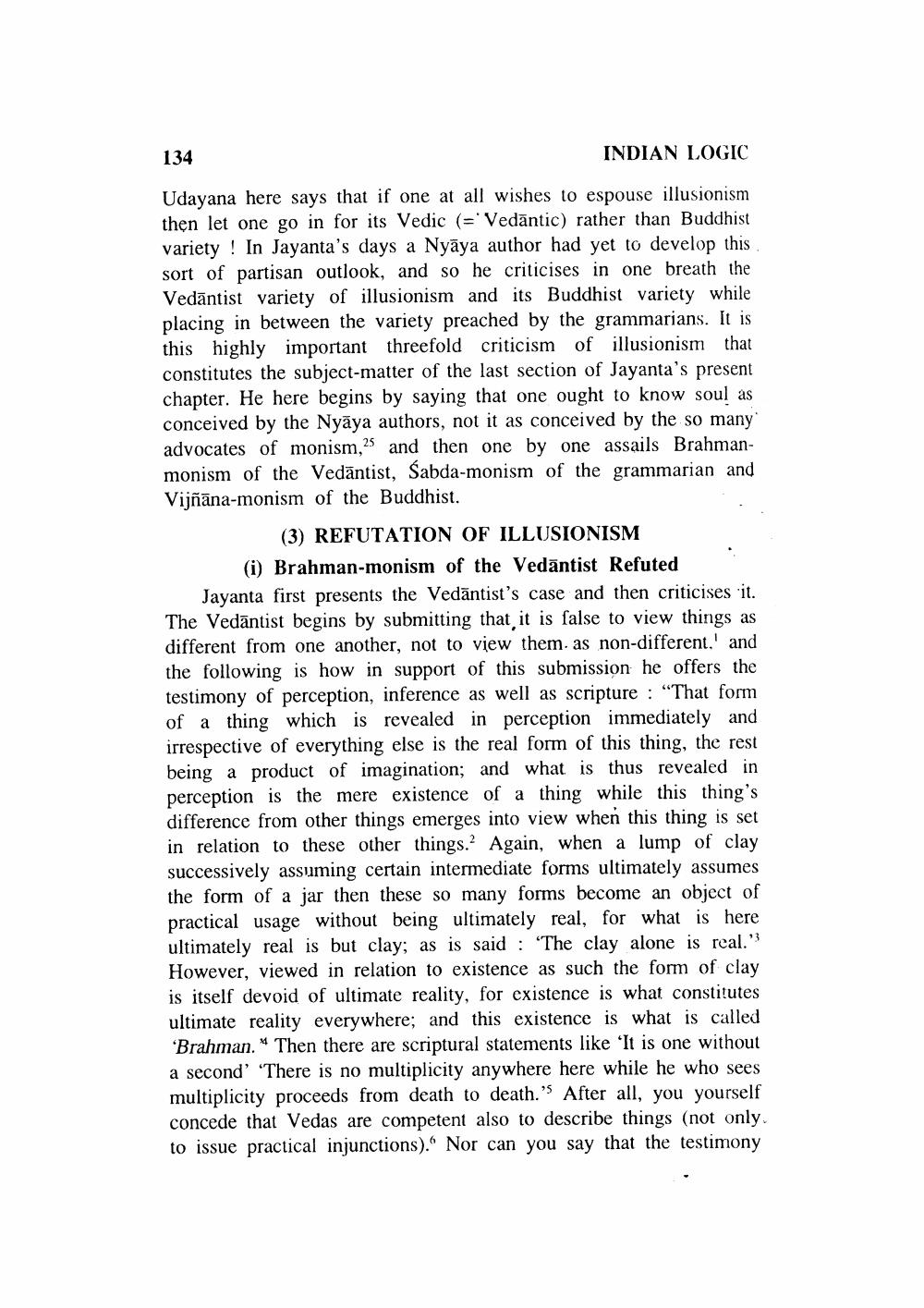________________
134
INDIAN LOGIC
Udayana here says that if one at all wishes to espouse illusionism then let one go in for its Vedic (='Vedāntic) rather than Buddhist variety ! In Jayanta's days a Nyāya author had yet to develop this sort of partisan outlook, and so he criticises in one breath the Vedāntist variety of illusionism and its Buddhist variety while placing in between the variety preached by the grammarians. It is this highly important threefold criticism of illusionism that constitutes the subject matter of the last section of Jayanta's present chapter. He here begins by saying that one ought to know soul as conceived by the Nyāya authors, not it as conceived by the so many advocates of monism,25 and then one by one assails Brahmanmonism of the Vedāntist, Sabda-monism of the grammarian and Vijñāna-monism of the Buddhist.
(3) REFUTATION OF ILLUSIONISM (i) Brahman-monism of the Vedāntist Refuted Jayanta first presents the Vedāntist's case and then criticises it. The Vedāntist begins by submitting that it is false to view things as different from one another, not to view them as non-different,' and the following is how in support of this submission he offers the testimony of perception, inference as well as scripture : "That form of a thing which is revealed in perception immediately and irrespective of everything else is the real form of this thing, the rest being a product of imagination; and what is thus revealed in perception is the mere existence of a thing while this thing's difference from other things emerges into view when this thing is set in relation to these other things. Again, when a lump of clay successively assuming certain intermediate forms ultimately assumes the form of a jar then these so many forms become an object of practical usage without being ultimately real, for what is here ultimately real is but clay; as is said: "The clay alone is real.'3 However, viewed in relation to existence as such the form of clay is itself devoid of ultimate reality, for existence is what constitutes ultimate reality everywhere; and this existence is what is called *Brahman. Then there are scriptural statements like 'It is one without a second' “There is no multiplicity anywhere here while he who sees multiplicity proceeds from death to death." After all, you yourself concede that Vedas are competent also to describe things (not only to issue practical injunctions). Nor can you say that the testimony




